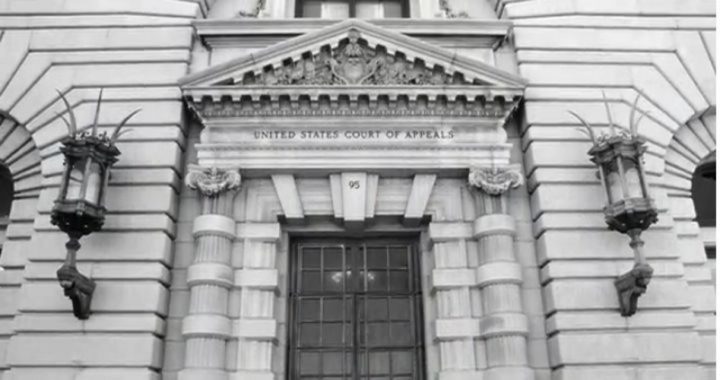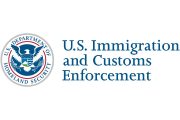
On June 12, a three-judge panel with the U.S. Court of Appeals for the Ninth Circuit ruled unanimously against President Trump’s March 6 executive order entitled “Protecting the Nation From Foreign Terrorists’ Entry Into the United States.” Trump tweeted his objections soon afterward.
The administration had asked the appeals court to reverse U.S. District Court Judge Derrick K. Watson’s March 16 ruling that blocked the executive order, which was Trump’s second attempt to ban foreign nationals from six countries identified as being state sponsors of terrorism or havens for terrorists, the first having been issued on January 27.
The Washington Post observed on the day after the ruling:
Unlike other courts in the past, the three judges did not dwell on Trump’s public comments, nor did they declare that the president had run afoul of the Constitution because his intent was to discriminate. Instead, they ruled that the travel ban lacked a sufficient national security or other justification that would make it legal, and that violated immigration law.
They offered no opinion on whether the ban was constitutional.
“There is no finding that present vetting standards are inadequate, and no finding that absent the improved vetting procedures there likely will be harm to our national interests,” the Post quoted from the ruling. “These identified reasons do not support the conclusion that the entry of nationals from the six designated countries would be harmful to our national interests.”
A CNN report included another quote from the ruling by the three judges, all appointed by President Bill Clinton: “We conclude that the President, in issuing the Executive Order, exceeded the scope of the authority delegated to him by Congress. Immigration, even for the President, is not a one-person show.”
On the morning after the ruling, President Trump tweeted his criticism of the court’s ruling, stating: “Well, as predicted, the 9th Circuit did it again — Ruled against the TRAVEL BAN at such a dangerous time in the history of our country. S.C.”
“S.C.” is an apparent reference to the Supreme Court, with which the Justice Department on June 1 filed emergency applications asking the court to block two lower court rulings against the travel ban executive order.
Trump’s Justice Department lawyers had refrained from using the term “travel ban,” believing the term would prejudice judges against the executive order. However, Trump seemed to disagree with some of his underlings in a series of tweets early in the morning of June 5, wherein he urged the Justice Department to “seek an expedited hearing of the watered down Travel Ban before the Supreme Court” while working on a “much tougher version in the meantime.” “The Justice Dept. should have stayed with the original Travel Ban, not the watered down, politically correct version they submitted to S.C.,” the president wrote on Twitter. Trump appeared to be reinforcing his preference by placing the words in all capital letters in his June 13 tweet.
Attorney General Jeff Sessions released a statement on the court’s decision posted on the Department of Justice website on June 12 that stated, in part:
President Trump’s Executive Order is well within his lawful authority to keep the Nation safe. We disagree with the Ninth Circuit’s decision to block that authority.
Recent attacks confirm that the threat to our nation is immediate and real. Certain countries shelter or sponsor terrorist groups like ISIS and al Qaeda, and we may be unable to obtain any reliable background information on individuals from these war-torn, failed states. We must not place our nation at risk until we have the ability accurately and responsibly to vet those seeking entry here….
The Executive Branch is entrusted with the responsibility to keep the country safe under Article II of the Constitution. Unfortunately, this injunction prevents the President from fully carrying out his Article II duties and has a chilling effect on security operations overall.
President Trump knows that the country he has been elected to lead is threatened daily by terrorists who believe in a radical ideology, and that there are active plots to infiltrate the U.S. immigration system — just as occurred prior to 9/11…. That is why the Department of Justice will continue to seek further review by the Supreme Court.
Another federal appeals court, the Virginia-based Fourth Circuit, also ruled against the travel ban last month, a decision the Trump administration has already appealed to the Supreme Court.
During a June 12 press briefing, a reporter asked Press Secretary Sean Spicer for his response to the Ninth Circuit Court’s ruling. Spicer replied, in part:
I think we can all attest that these are very dangerous times and we need every available tool at our disposal to prevent terrorists from entering the United States and committing acts of bloodshed and violence. We continue to be confident that the President’s executive order to protect this country is fully lawful and ultimately will be upheld by the Supreme Court.
In a follow-up question, the report noted that the court ruling cited the president’s tweets from June 5 on the travel ban, as well as the administration’s statement that the president’s tweets are official statements. Given those facts, the reporter asked Spicer if Trump was not putting his own agenda in danger when it comes to his Twitter habits.
Spicer replied that cases should be decided only on the rule of law. He continued:
When you look at what the law is and the U.S. code that allows the President to do whatever he needs to, that’s what we were deciding on. And frankly, I think any lawyer worth their salt 100 percent agrees that the President is fully within his rights and his responsibilities to do what is necessary to protect the country.
While the question concerning what powers the president has to protect the country might be subject to debate, if we consider that former President Bush sent troops to Afghanistan and Iraq without a congressional declaration of war — supposedly to protect the country — then, merely restricting migration from countries known to be hotbeds for terrorist activities seems like a much more modest action.
Photo of one courthouse of the Ninth Circuit Court: Ninth Circuit Court
Related articles:
Trump’s DOJ Submitted “Watered Down” Version of His Travel Ban to Supreme Court
Trump Administration Asks SCOTUS to Rule on “Travel Ban”
9th Circuit Court Considers Appeal of Judge’s Order Against Trump Travel Ban
Federal Judge Upholds Trump Travel Ban Blocked by Other Courts
Federal Judges Again Block Trump Travel Ban From Nations With Terrorist Ties
Trump Signs New Immigration Executive Order
Judge Grants Stay to Bar Trump DHS From Deporting Aliens From Seven Nations of Concern
Trump’s Order Suspending Refugee Program: Racism or Balanced National Security?
Trump Executive Order to Ban Nationals of “Countries of Particular Concern”



